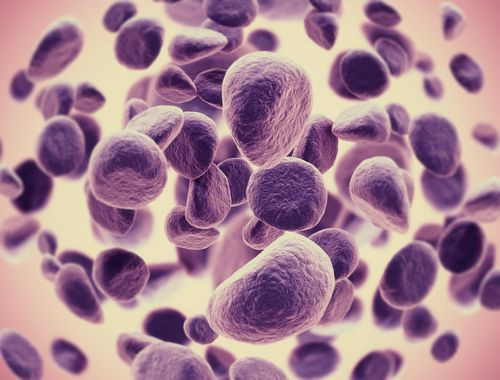Reintroducing Protein Complex MPC Slows Colon Cancer Tumor Growth

Therapies that target cancer cells often destabilize the processes that influence the uncontrolled growth of these cells. While some therapies try to eliminate proteins or agents that feed tumors, others rely on introduction of natural cellular agents that have tumor-destroying capabilities. One such agent is the mitochondrial pyruvate carrier (MPC), the reintroduction of which in colon cancer cells hampers cancer growth.
The role of this carrier in the spread of colon cancer and its possible implications on future cancer therapies was recently explored in a University of Utah-led study. The results were published Thursday in the journal Molecular Cell.
Our body doesn’t give up so easily to cancer. It initially does put up a fight against the advancing disease. And one of the soldiers that lead this attack against cancer is the MPC. MPC acts by reducing the Warburg effect. This effect, hypothesized by the Nobel Prize-winning biochemist Otto Warburg, states that cells change their metabolism to support uncontrolled growth and turn cancerous.
The key to this metabolic change is the introduction of the metabolite pyruvate. In normal adult cells, pyruvate enters the mitochondria, the cell's powerhouse, and fuels energy production. In cancer, pyruvate is diverted from the mitochondria to an alternative metabolic pathway that makes cell-building material.
MPC prevents the pyruvate from being rerouted and forces its entry into the mitochondria. So what do cancer cells do? They do whatever they can to eliminate MPC from the cells. This is the reason why many types of cancers (including brain, breast, and colon) have significantly less MPC within them as compared to normal tissue.
Recent biopsies of patients’ tumors have also suggested that the lesser the MPC is expressed, the more aggressive the cancer.
The team, led by Jared Rutter, also found that when MPC was reintroduced into colon cancer cell lines, their cancer properties reversed. In effect, they showed less cell division and expression of stem cell markers — an early indicator of the progression of tumors.
Also, when these cells containing MPC were injected into mice, their ability to form tumors was significantly reduced. The tumors formed by cells containing MPC were also significantly smaller than those formed by cells without MPC.
So not only did reintroduction of MPC into the tumor cells inhibit growth, but the MPC also redirects pyruvate to the metabolic pathway used in normal cells. In other words, MPC counteracts the Warburg effect.
"This makes sense because MPC is a pinch point in metabolism," said Rutter in a press release. "Our work, taken together with that from many other laboratories shows that most cancer cells are completely reliant on this unusual metabolism known as the Warburg effect."
This research has provided a deeper understanding of the Warburg effect and its implications on cancer therapies. "We think this information can be used to design therapies that are specifically toxic to cancer cells," Rutter said.
Source: Rutter J, Schell J,Olson, et al. A Role for the Mitochondrial Pyruvate Carrier as a Repressor
of the Warburg Effect and Colon Cancer Growth. Molecular Cell. 2014.



























